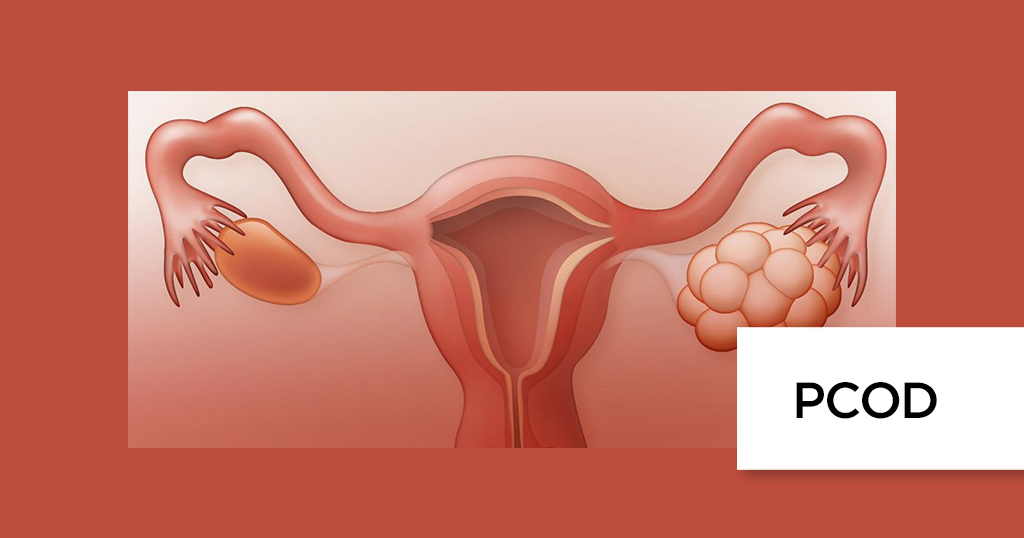Around 6-10% of women suffer from polycystic ovarian disease (PCOD) globally, the number gradually increasing at an alarming rate. The rates are pretty alarmingly high in India, where every one in every five women struggles with PCOD or PCOS (polycystic ovarian syndrome).
However, the statistics of this disease aren’t the scary part. Patients’ most common question regarding the condition is, “Is PCOD Curable?”
We explore that and a lot more in this article, all the data have a scientific basis and evidence.
In this Article
What is PCOD?
Before discussing the cure, let us discuss what the disease entails.
PCOD or polycystic ovarian disease is a medical condition that occurs when a woman’s ovary/ovaries produce immature ovum/egg from the ovarian follicles in excessive amounts. So, instead of producing one mature egg for fertilization every month, the ovaries release multiple partially mature or immature eggs every month.
This leads to excess eggs inside the ovaries, leading to cysts’ formation. The accumulated eggs also produce excess androgens in the bloodstream that lead to menstrual cycle issues and can even lead to infertility in some cases.
How is PCOD Diagnosed?
Like PCOS, there are no “standard” medical tests available for diagnosing the incidence of PCOD in the body. However, a handful of generic diagnostic tests can help with the diagnosis.
Some of the most notable ones include:
Pelvic examination – An ultrasound imaging is advised to check and scope the reproductive organs in the body to look for signs of masses, growths which indicate the prevalence of cysts.
Blood tests – A few routine and subjective blood tests like testing for androgen levels and other hormones help identify further hormonal abnormalities in the body. A glucose tolerance test helps check for the prevalence of insulin resistance (IR) since PCOD and IR are related.
Medical history – A comprehensive report of the medical history informs the doctors about an abnormal menstrual cycle or other complications that could further contribute to the condition.
Patients with suspected PCOD are also advised to undergo tests for sleep apnea, thyroid disorders and check for depression and anxiety from a behavioral counselor.
Is PCOD Permanently Curable?
A study published on Springer that nitpicks the topic of PCOD and PCOS treatment infers that the condition “can be controlled, symptoms can be reduced.”
The primary reason PCOD isn’t permanently curable is that doctors are still unsure about the leading cause behind the condition. In comparison, some studies blame the sudden hormonal imbalance as a contributing factor, some highlight genetic predisposition as the primary trigger.
The study further reiterates that the secondary causes of PCOD are curable, which helps reduce the consequences of the disease to a great extent. Since PCOD and PCOS occur in multiple different phenotypes, it isn’t surprising that finding a standard cure for the condition isn’t available at present.
However, patients can live a comfortable life with minor complications with the available treatment options, medication, or lifestyle changes.
There are certain risk factors to PCOD which balance the symptoms better. Some of them include:
- Obesity
- Poor dietary choices
- Sedentary lifestyle
- Unhealthy habits like smoking, drinking alcohol, etc.
Not managing the symptoms of PCOD at an early stage is also tied with developing comorbidities like cardiovascular complications and diabetes.
The current need of the hour for PCOD problem solutions is to develop uniformity in the diagnosis, treatment, and associated research.
What are the Treatment Options for PCOD?
As we said, PCOD isn’t curable, but with proper medications and therapy, the symptoms are manageable. Several patients have witnessed substantial improvements to their life and health after getting the correct treatment plan.
Generally, your doctor will advise starting with lifestyle changes to see any changes to the condition. If that doesn’t work, medications or medical therapies are prescribed in addition.
However, studies have found that lifestyle changes like maintaining a healthy weight, eating less carbohydrates, being more active have better potential in tackling the symptoms that come with PCOD.
Besides these, medications like a combination of birth control pills, metformin, progestin therapy are prescribed on the side to balance the hormonal imbalance and prevent the symptoms from getting worse.
Conclusion
PCOD is a very subjective condition that affects its patients in a different manner. While some women don’t get it diagnosed until later in life due to no prominent symptoms, some women get their diagnosis early. There are no standard treatment options except introducing potential lifestyle changes.
The answer to “How to Cure PCOD Permanently?” is a question that doctors and researchers are still working on. There is consistent research to support further discovery about the causes and the possible treatments for the condition. Until then, consult an experienced doctor and get into a treatment regimen as early as you can.
References:
1- Is PCOD Permanently Curable? | Springer
This content has been reviewed by Srujana Mohanty who is working in scientific & medical writing and editing since 2018. She is also associated with the quality assurance team of scientific journal editing.




